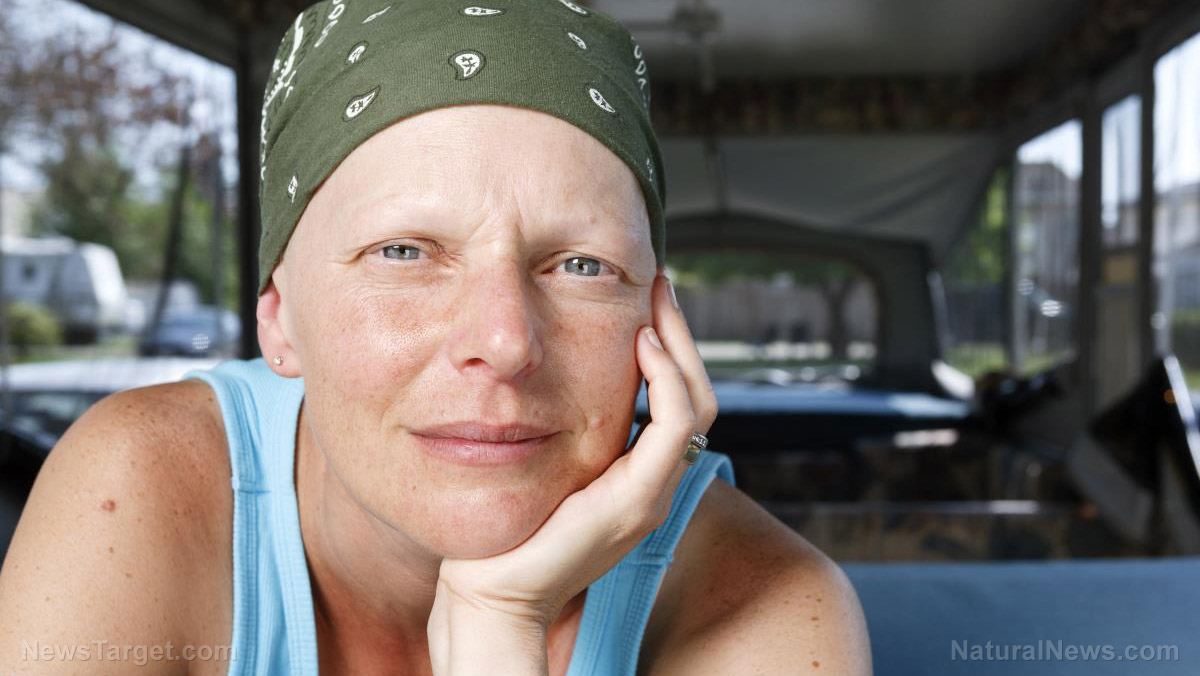Breast cancer patients don’t trust the system and want better treatment, according to new study
12/01/2017 / By Lance D Johnson

A growing number of breast cancer patients are beginning to trust their own instincts and go against their doctor’s advice. In a new survey, nearly one third of women with breast cancer chose to forgo the full, recommended course of chemotherapy, radiation, or hormone therapy, post-surgery. Health authorities find this troubling because “treatment discordance” could lead to negative health outcomes. The adjuvant anti-cancer therapy that is recommended after surgery is intended to kill off residual tumor cells; however, many patients are finding more empowering ways to bring their cells to life instead of suffering through excruciating chemotherapy and radiation regimes. The research was led by John Hopkins Bloomberg School of Public Health and published in Cancer Epidemiology, Biomarkers & Prevention.
Of the 2,754 breast cancer patients surveyed in a two-year period, 30.2 discontinued at least one recommended treatment because they distrust medical institutions and insurers. Those who reported the highest level of mistrust were 22 percent more likely to discontinue doctor’s recommendations.
“If we want more women with breast cancer to complete their treatment, we’ll need to deal with their beliefs about the healthcare system — and I do think we can modify those beliefs,” says lead author Lorraine T. Dean, ScD, assistant professor in the Bloomberg School’s Department of Epidemiology. “While it is surprising in general that nearly one-third of patients are not following up with recommended adjuvant treatment, some earlier, more localized studies have reported even higher discordance rates, and it’s possible that our own figures would have been higher if we had followed patients for more than two years,” Dean notes.
The power of the elements: Discover Colloidal Silver Mouthwash with quality, natural ingredients like Sangre de Drago sap, black walnut hulls, menthol crystals and more. Zero artificial sweeteners, colors or alcohol. Learn more at the Health Ranger Store and help support this news site.
Instead of trying to listen and understand what some breast cancer patients are doing to heal their bodies, medical authorities strive to change or “modify those beliefs.” Medical authorities are discrediting patients’ own instincts and are not investigating exactly what these patients are doing to heal their bodies (or what they would like to do, but don’t have the support).
Numerous testimonies of cancer patients reveal there are better ways to restore the body and keep cancer cells in check. The answer lies in strengthening the person’s immune system, instead of destroying it with chemotherapy. Most of these chemotherapy agents attack both rogue cancer cells and healthy cells, weakening the entire person in the process. The toxic side effects destroy the patient’s quality of life and make them more prone to other health issues.
Patient distrust toward cancer treatments is good in this circumstance because chemotherapy has a low success rate and defeats the purpose of healing, especially in cases of benign or non-invasive cancer. As such, in the study, refusal of chemotherapy and radiation was highest for patients with stage 1 breast cancer. Refusal was also highest in Florida because insurance companies there allow coverage for a second opinion.
Much of chemotherapy’s perceived success comes from the fact that millions of women are given false positives for cancer in the first place. Mammograms fool many people into scary cancer diagnoses that aren’t real but lead to unnecessary surgeries and treatments. If detected early, cancer should first be treated holistically. Insurance companies should welcome second and third opinions, instead of monetarily dictating treatment options. Thermography is a safer detection method and could rule out many false positives due to faulty mammograms.
Instead of forcing compliance to chemotherapy and radiation, medical authorities should work with patients to find out which direction they want to pursue. Real doctors and medical researchers wouldn’t feed their own ego and call their patients distrusting for wanting a better way. Real doctors would open their minds and help the patient detoxify their body and restore it through therapeutic doses of nutrition.
The research team reported that treatment discordance led to a 40 percent likelihood of cancer recurrence. This shows that the medical system needs to do more to support patients through the entire process, not just dictate expensive, painful and ineffective treatments. Again there’s so many better ways to support the patient’s healing recovery through less-invasive, stress-reducing, lifestyle-changing, nutritive, and detoxification support.
Sources for this article include:
Tagged Under: benign cancer, breast cancer, false-positive, Hormone therapy, insurance companies, mammograms, medical system, non-invasive cancer, nutrition, over-treatment, patient distrust, radiation, thermography, women's health




















